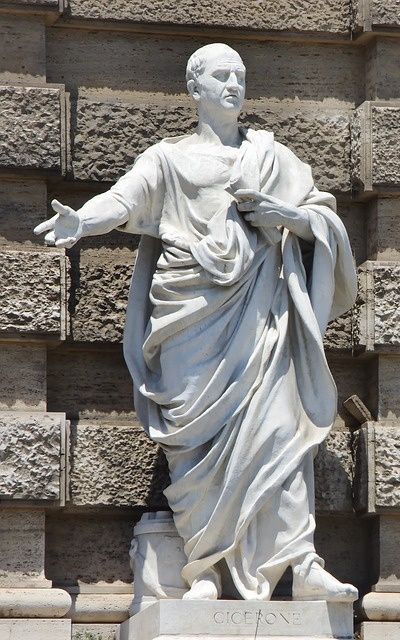Questions on Political Theory
To Be
Loved or To Be Feared? Argument on Cicero and Machiavelli.
Abstract
Cicero thinks that love must be preferred to fear in politics: “there is nothing at all more suited to protecting and retaining influence than to be loved, and nothing less suited than to be feared.” According to Cicero, fear brings about hatred and hatred ruin. Machiavelli thinks otherwise; one can, he believes, be feared without incurring hatred and this is better than being loved. Both of them have strong certitude, but one can argue, who is right then?
Cicero thinks that love must be preferred to fear in politics: “there is nothing at all more suited to protecting and retaining influence than to be loved, and nothing less suited than to be feared.” According to Cicero, fear brings about hatred and hatred ruin. Machiavelli thinks otherwise; one can, he believes, be feared without incurring hatred and this is better than being loved. Both of them have strong certitude, but one can argue, who is right then?


In this essay, I would like to argue whether – as a ruler – it is better
to be feared or to be loved, including both, Machiavelli’s and Cicero’s side.
Which one is better is the short term? Which one is more useful in the long
term? Can a ruler be both, feared and loved at the same time? Those are the questions
I try to answer here, in order to help us understand, which option is better
for a ruler.
On one side, according to Cicero: “There
are two ways in which injustice may be done, either through force or through
deceit; and deceit seems to belong to a little fox, force to a lion. Both of
them seem most alien to a human being; but deceit deserves a greater hatred.
And out of all injustice, nothing deserves punishment more than that of men
who, just at the time when they are most betraying trust, act in such a way
that they might appear to be good men.” (Cicero, De Officiis, 1.41)
On the other side then, looking at
the Machiavellian ideal, it is more complex than it is from Cicero. Machiavelli
is someone, who counts with luck in politics, he has an example on how rulers
should owe little to luck for sometime, but in that period, while they have
their luck they should prepare for the time when the luck is gone, therefore
they have to stabilize. His example is about a young prince, who wanted to
establish his power on the future throne, everything went well, he needed one
more year to complete his plan, then suddenly his luck has gone by his father’s
death. We can see, Machiavelli thinks rulers should use luck for strengthening
their power for later, he counts with luck in life. Upon this then, let us see
whether it is better to be loved or to be feared.
First,
we have to understand, that
In a conclusion, I think we can
clearly see, as a ruler, especially as a new ruler of a territory, in the long
term it is more useful to be feared. Not just because it is more easier to act
in a way that people will be feared of, than to act in favour of all those
people to love you, but because it establishes the power for the ruler in the
long term, the people will not try to remove him, fearing the revenge.
Comments
Post a Comment